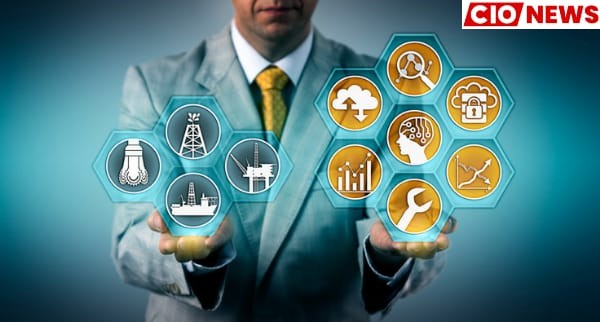CIOs across industries are now on a multi-pronged approach to planning the unforeseen future.
Although companies are still struggling to resolve economic challenges and to maintain liquidity for their enterprises, CIOs are now under greater pressure to meet new criteria with a tight budget.
Amid Covid-19, several businesses are concentrating on investing in new technology, such as AI, where others are still struggling to fulfill their infrastructure and hardware requirements. But as we reach the unlocking process all over the world, CIOs are planning their advice and outlook for the post Covid-19 scenario.
Adobe ‘s recent CIO survey shows that Outlook of Indian CIOs is optimistic about their organization’s ability to find success in the post-Covid-19 economy and to commit to a positive strategy.
Talking about the business dynamics in IT spending in the post-Covid-19 plan and CIOs interest line, Scott Rigby, Head of Digital Transformation, Adobe Asia Pacific, said, “As we moved quickly from working in an increasingly digital environment to digital-only, CIOs had to concentrate on their strategies to prioritise the needs of their customers and employees. While early investments in digital technology have seen benefits, others have looked at strengthening their digital foundation or developing robust digital strategies for their long-term success. When we look to the future, CIOs are keen to invest in digital interfaces and virtual workplace management technologies.
Going employee-centric
In addition to IT expenditure, employee re-skilling and innovation are equally important to organisations, including Capgemini.
“Getting started with post Covid-19 planning involves 2 major pillars, first investing in technology and second is investing in reskilling our employees to support the new normal remote working norms. This planning will bring expenditures,”Mukesh Jain, CTIO, Insights & Data, India, Capgemini said.
“Expenditure is always related to and connected with business outcomes, and we will be needing to expand our Infrastructure and other IT services for supporting the business. Though we will be investing in technologies, on the same hand, some of the non-critical new IT Projects might be postponed for some time,” he said.
Jain feels the need of the hour is to enhance AI/Analytics models to help prevent issues and predict better and therefore investments should be focused in these areas. “Our strategy will be agile and planning of IT spending in the coming future will depend on the business needs,” Jain said.
He feels apart from investing in technology, a CIO should focus on reskilling the company’s workforce to adapt those technologies. So with this thought and bringing light to the second pillar of the company’s post Covid-19 plan, Capgemini has started an initiative called Millennial Garage.
This company-wide program will suffice Capgemini’s post Covid-19 plan by introducing its workforce in a series of technology sessions and training. “The program has my vision to provide an environment for innovation where people at all levels can come together, ideate and develop solutions on latest technologies like Analytics, Machine Learning, Artificial Intelligence, solve complex problems and deliver innovative solutions,” Jain added.
Indus Towers is taking a similar approach towards focusing on its workforce
“Like any other organisation in the world, our work culture needs to be reassessed as a lot of assumptions we’ve made have been disrupted by the pandemic,” said Vinod Krishnan, CIO, Indus Towers. “The workforce is a priority in our post-Covid-19 program.People play a pivotal role in our business. While the underlying values on which our vibrant Indus culture is based remain the same, the expression of those in the new normal will need to be developed.We expect this to be a rearrangement rather than an upheaval, and I can already see signs that our level of collaboration and trust has only increased as a result of forced distancing from colleagues and our office space.The post-lock market promises to be robust, with demand for connectivity and telecommunications infrastructure increasing in new directions. This is where we’re going to work on our post-covid-19 approach.
New hardware purchase
As the company faced challenges with the adoption of the WFH shift during this pandemic, Seema Gaur, Executive Director and Head of IT, IFFCO-Tokio General Insurance, revealed its plan focused on the company’s hardware requirements.
“Our post Covid-19 plan will focus on developing new revenue streams through technology. The strategy is to leverage digital technologies and channels which will lead to automation of a lot of processes so that issuing policy and claim settlement process becomes convenient for customers. The focus of the company will remain the same to serve its customers in the best possible way but with more digital influence,” Seema Gaur, Executive Director and Head-IT, IFFCO-Tokio General Insurance said.
“Currently we have technology projects such as AI, ML bots, RPA,etc to optimise claim processes, enhancing customer experience and supporting sales operations as well.
So with post Covid-19 spending plan, our buying list will focus on hardware such as buying new laptops which will be integrated to current desktop given to employees, IT infrastructure, network enhancement, and more. Right now there’s a lack of hardware such as wifi devices, individual laptops, etc. State and city wise, we will be addressing this requirement in our post Covid-19 plan to ensure our continuity in any such black swan events in the coming future. After this, we will be focusing on developing digital revenue streams for renewal requests, claims and other business assets,” Gaur added.






